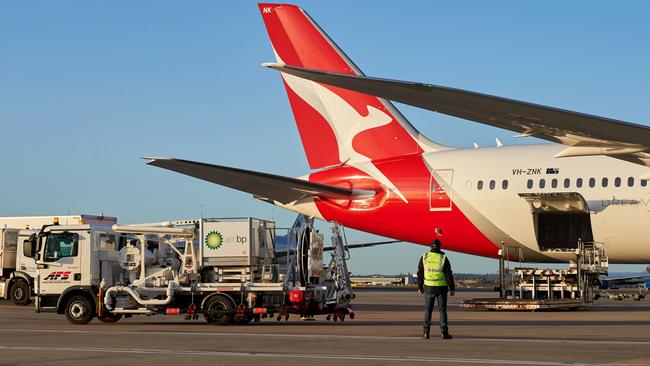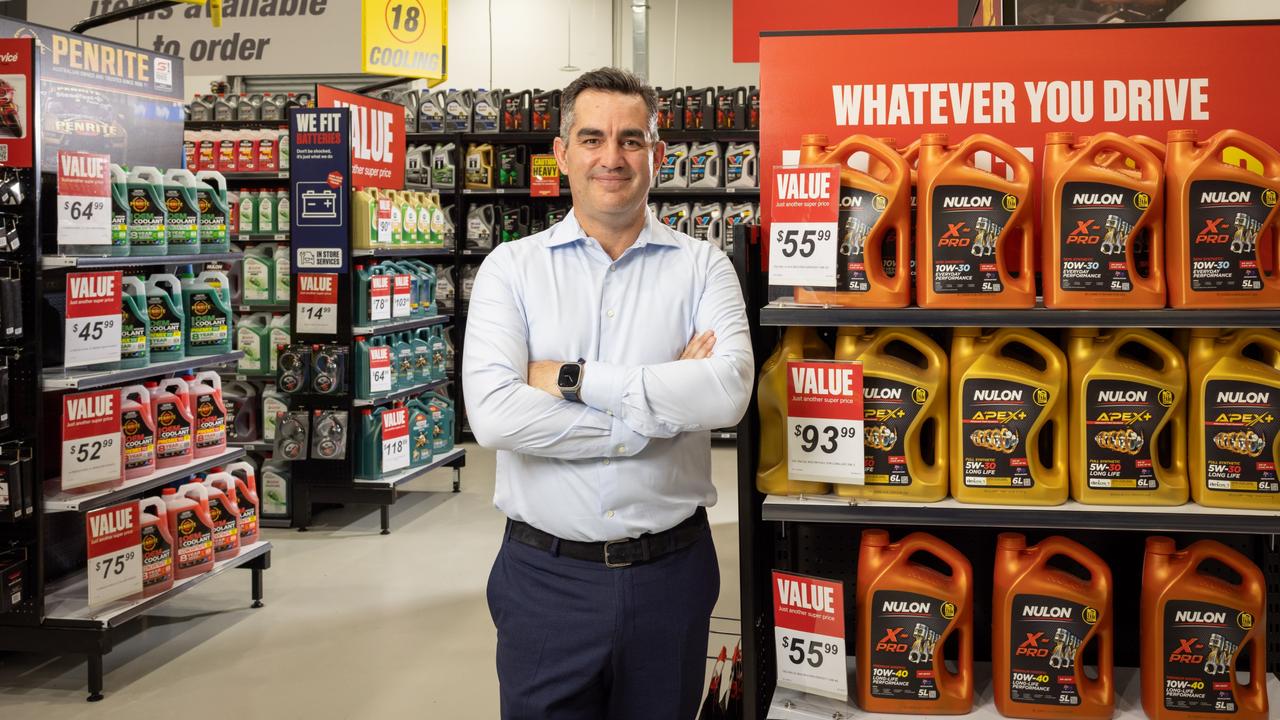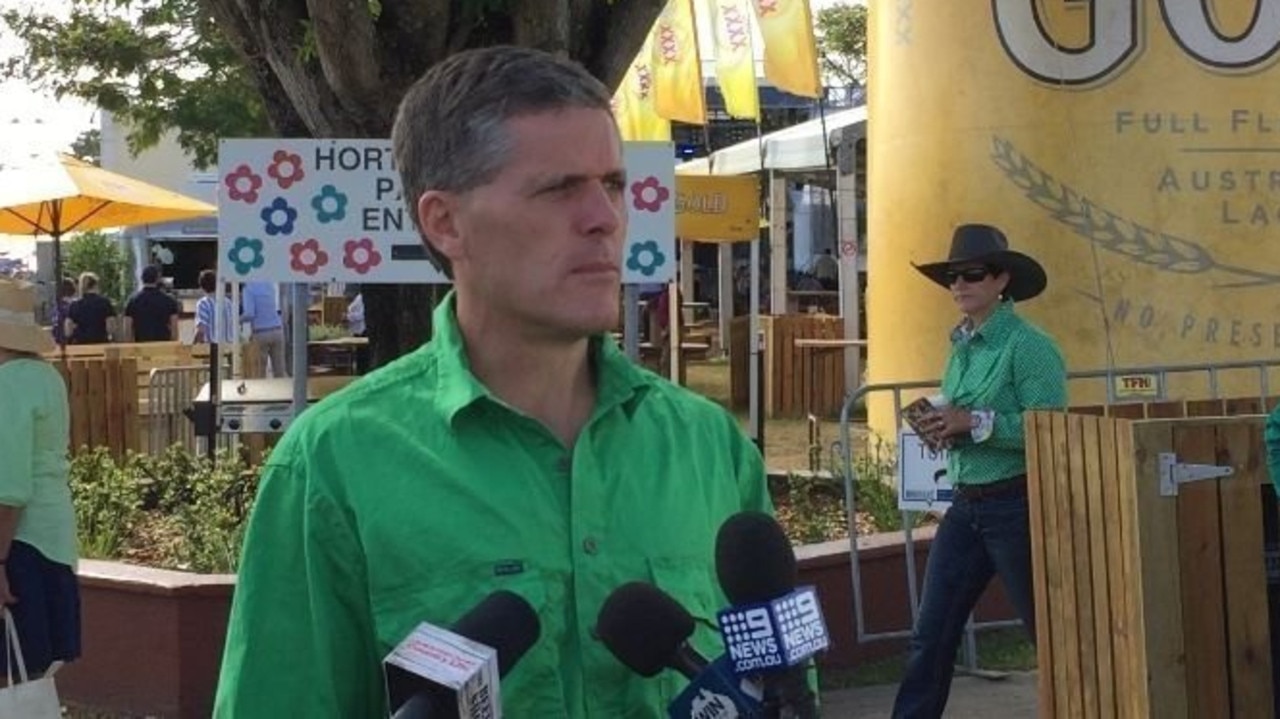Qantas, Queensland sign agreement to deliver ‘green’ aviation fuel industry
The Queensland government has signed a MOU with Qantas to deliver Australia’s first bio-refinery.

Business
Don't miss out on the headlines from Business. Followed categories will be added to My News.
The Queensland government has signed a memorandum of understanding with Qantas to deliver the country’s first bio-refinery capable of producing 100 million litres of sustainable aviation fuel (SAF) a year.
SAF can be produced from certified bio feedstock, including used cooking oil, forestry residue, sugar cane trash, animal tallow and other waste products.
Announcing the partnership, Queensland Deputy Premier Steven Miles said a local SAF industry was “the only way we’ll continue to be able to fly while achieving net zero emissions”.
“Queensland is perfectly situated to be a world leader in the production of SAF,” Mr Miles said. “We have the feedstock, we have the land, we have the sunshine, we have the established resources industry.”
The next step was to conduct feasibility studies which would determine where to build the refinery, what feedstocks and what technology to use, and what provider to partner with, Mr Miles said.
“These are long-term projects that will deliver long-term benefits to our state as well as the benefit of being able to continue to fly,” he said.
The agreement with Queensland followed years of lobbying by Qantas to establish a local SAF industry, which is critical to achieving the airline’s target of net zero emissions by 2050.
In the absence of locally produced biofuel, Qantas has signed deals with overseas producers in London and the US state of California to supply it with millions of litres of SAF.
Last year Qantas teamed with Airbus to announce a $300m fund to invest in locally developed SAF and feedstock initiatives.
The first payment of $2m was made in March. That went to Jet Zero Australia for a feasibility study into what would be the country’s first alcohol-to-jet SAF plant, using technology from LanzaJet.
Queensland is contributing $760,000 to that project but was not prepared to put a dollar figure on the value of the latest partnership.
Qantas Group chief sustainability officer Andrew Parker said sustainable fuels were the most significant tools airline currently had to reduce their emissions, given they could be used in aircraft engines without modification.
“Air travel is a critical industry, especially in a state as big as Queensland with an economy that benefits so much from tourism,” Mr Parker said.
“Having a clear plan to decarbonise air travel so we can keep connecting Queensland and Australia in the decades ahead is key for the future.”
He said it was “fantastic” the Queensland government was partnering with Qantas, which would be the largest single customer for Australian-made SAF.
“The Queensland government is already showing real leadership in helping accelerate the development of a local SAF industry, which is giving the state a head start over other parts of the country,” Mr Parker said.
A local SAF industry had the potential to generate $3bn a year and employ more than 15,000 people, mostly in regional areas.
Current SAF production rates internationally were a tiny fraction of what was needed by commercial airlines. Prices ranged from two to nine times that of fossil-based jet fuel.
Qantas is teaming up with major companies such as Australia Post, KPMG and Woodside Energy to help bankroll SAF, and this week indicated passengers could be given the option of paying extra to offset emissions by purchasing SAF.
Originally published as Qantas, Queensland sign agreement to deliver ‘green’ aviation fuel industry



